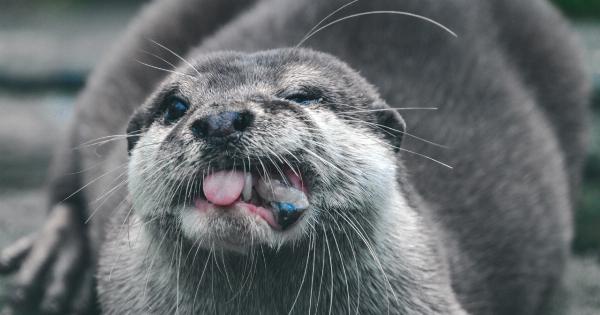Clean Monday is an important religious holiday in Greece and is celebrated widely across the country. The day marks the beginning of Lent, a period of 40 days during which people fast as they prepare for Easter.
Traditionally, on this day, people abstain from eating meat and instead consume a range of vegetarian and seafood dishes. However, pet owners need to be careful about what they feed their furry friends on this day. Some food items that are consumed by humans during the Clean Monday celebrations can be harmful or even lethal to pets.
In this article, we will discuss the foods that you should avoid feeding your pet on Clean Monday to keep them safe and healthy.
: 1. Onion and Garlic
Onion and garlic are commonly used in Greek cuisine and are an integral part of many Clean Monday dishes. However, these foods are toxic to pets and should be avoided.
They contain compounds that can cause oxidative damage to the red blood cells in animals, leading to a condition called hemolytic anemia. Symptoms of this condition include weakness, lethargy, pale gums, and dark urine. If your pet shows any of these symptoms after consuming onion or garlic, take them to the vet immediately.
: 2. Chocolate
Chocolate is toxic to dogs and cats and should be kept out of their reach at all times. Chocolate contains a compound called theobromine, which can cause vomiting, diarrhea, rapid heart rate, seizures, and even death in pets.
Dark chocolate and baking chocolate are more dangerous than milk chocolate, as they contain higher levels of theobromine. If your pet ingests chocolate, contact your veterinarian immediately.
: 3. Bones
Many Clean Monday dishes include fish, which can have small bones that pose a choking hazard to pets. Bones can also splinter and cause damage to the digestive tract.
Always remove bones from fish before giving it to your pet or opt for boneless fish options. Avoid giving your pet any cooked bones, even if they are from fish. Cooked bones can splinter and cause serious injuries to pets.
: 4. Nuts
Nuts are a popular snack during Clean Monday celebrations but can be harmful to pets. Macadamia nuts, in particular, are toxic to dogs and can cause symptoms such as weakness, vomiting, and hyperthermia.
Other nuts, such as almonds, pistachios, and walnuts, can also cause digestive issues in pets and should be avoided.
: 5. Alcohol
Alcoholic beverages should never be given to pets, even in small amounts. Alcohol can cause gastrointestinal upset, central nervous system depression, breathing difficulties, and even coma or death in pets.
If your pet accidentally ingests alcohol, contact your veterinarian immediately.
: 6. Dairy Products
Pets may have trouble digesting dairy products, especially those that are high in fat. Consuming dairy can lead to digestive issues such as abdominal pain, bloating, gas, and diarrhea.
If your pet is lactose intolerant, consuming dairy products can cause even more severe symptoms. Instead of giving your pet dairy products, opt for dairy-free alternatives such as tofu, rice milk, or coconut milk.
: 7. Grapes and Raisins
Grapes and raisins can cause kidney failure in pets and should be avoided at all costs. Even a small amount of grapes and raisins can be toxic to dogs and cats and can lead to symptoms such as vomiting, diarrhea, lethargy, and kidney failure.
If your pet accidentally ingests grapes or raisins, seek veterinary care immediately.
: 8. Avocado
Avocado contains a compound called persin, which is toxic to pets in large amounts. Eating avocado can cause symptoms such as vomiting, diarrhea, and heart congestion in animals.
While small amounts of avocado are unlikely to cause harm, it is best to avoid feeding avocado to your pets altogether.
: 9. Fatty Foods
Fatty foods can cause digestive issues such as vomiting, diarrhea, and pancreatitis in pets. Pancreatitis is a condition that occurs when the pancreas becomes inflamed, and it can be life-threatening if left untreated.
Avoid giving your pet fatty foods such as fried foods, bacon, and cheese, as they can cause digestive issues and long-term health problems.
: 10. Spicy Foods
Spicy foods can cause digestive upset in pets, just like they do in humans. Consuming spicy foods can lead to vomiting, diarrhea, and abdominal pain in animals. Additionally, spicy foods can also cause burns and irritation in the mouth and throat.
It is best to avoid giving your pets spicy foods altogether.
: Conclusion
Feeding your pet properly is essential to their well-being, especially during holidays such as Clean Monday when we tend to indulge in a range of foods.
While it can be tempting to share your meal with your pet, it is essential to be mindful of the foods that can be harmful to them. Avoid feeding your pet onion and garlic, chocolate, bones, nuts, alcohol, dairy products, grapes and raisins, avocado, fatty foods, and spicy foods to keep them safe and healthy.
In case your pet accidentally ingests any of these foods, contact your veterinarian immediately.





























